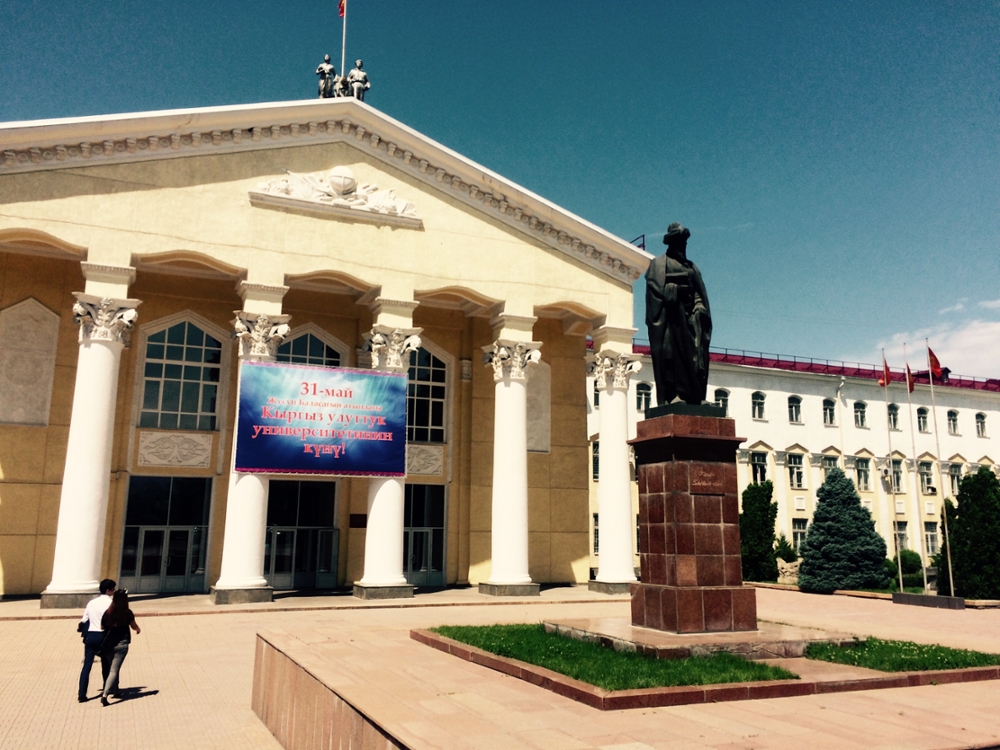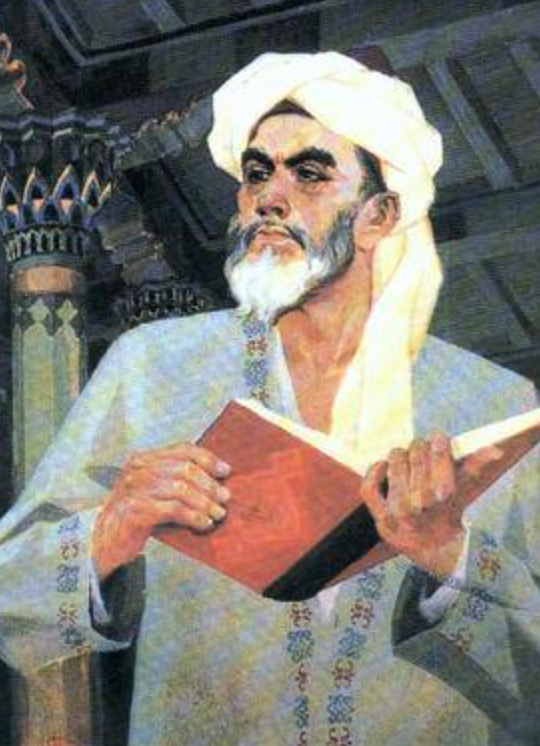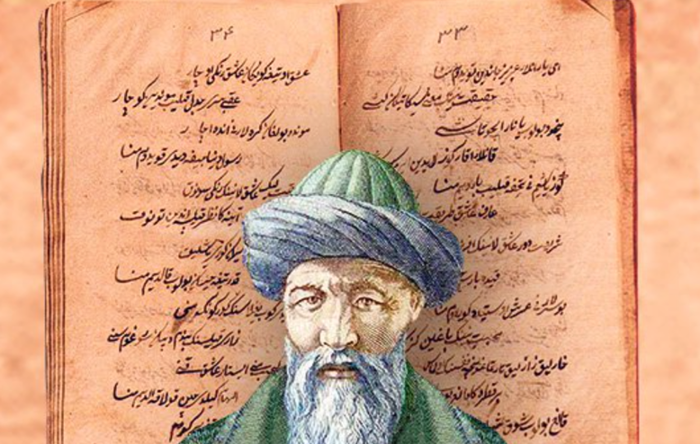Wisdom of Royal Glory //Kutadgu Bilig
Visit to Kyrgyz National University
EMWI works with the Nonprofit Management Resource Center at the Kyrgyz National University to develop the nonprofit management program there. Recently, I accompanied Baktygul and Ruslan to a meeting with the director of the resource center.

Ruslan proceeded to describe Balasagyn as a scholar, philosopher and advisor who wrote one of the most famous works of Turkic literature. His book is called Kut…
Wait. You mean Kutadgu Bilig? He’s Yusuf Has Hacib, the 11th century scholar? But Yusuf Has Hacib is Uyghur.

Yusuf Has Hajib & Kutadgu Bilig (Wisdom of Royal Glory)
It turns out that most of the Central Asian countries claim Yusuf Has Hacib belongs to their ethnic group. Just like they all lay claim on Nesirdin Epindim or Nasrettin Hoca as the Turks call him. Understandable. Who wouldn’t want to claim they descended from legendary scholars like Yusuf Has Hacib and Mahmut Kashgari and witty folk figures like Nesirdin Epindim? But the wisdom of these legendary Turkic scholars has no tribe. We can all take pride in their contributions.
After returning to the office, I did some research and learned that KNU’s full name is Jusup Balasagyn Kyrgyz National University. The Kyrgyz called him Balasagyn because he was born in the city of Balasagyn, which is located in modern-day Kyrgyzstan. But like most Uyghurs and Turks I know him as Yusuf Has Hacib – one of the greatest Uyghur scholars of all time. His alleged grave is at a mausoleum in Kashgar, the Uyghur city where he died.
The Uyghurs and Turks call him Yusuf Has Hajib because “Has Hajib” is the honorific the Sultan of the Karakhanid Empire awarded Yusuf. Yusuf Has Hajib wrote Kutadgu Bilig. Robert Dankoff translated Kutadgu Bilig into English in 1983 under the title “Wisdom of Royal Glory: A Turko-Islamic Mirror for Princes.”

Yusuf Has Hajib wrote Kutadgu Bilig for the Karakhanid Sultan Tavgach Bugra Kara Khan. It’s a political treatise of advise for rulers much like Machiavelli’s Prince, which was dedicated to the governor of Florence. But unlike the Prince, Kutadgu Bilig is written in poetry and advises rulers and advisers to forsake vice for virtue.
Kutadgu Bilig is a narrative the interaction among four main characters – Kuntogdi, Aytoldi, Ogdulmish, and Ogdurmish. Kuntogdi (Rising Sun) is the Sultan and represents justice. Aytoldi (Full Moon) is the Sultan’s advisor and he represents fortune. Ogdulmish (Highly Praised) is Advisor’s sage son, and he represents wisdom. Ogdurmish is a dervish, and he represents man’s end.
Needless to say, I’m slightly obsessed with Kutadgu Bilig. My dad bought me the audio book version (in Uyghur) last year, and I’ve finished listening to one of the four disks. I have also read exerts of Kutadgu Bilig in Turkish and am looking for a copy of the English translation. It costs over $75 on Amazon so I think I’ll wait until I get back to Williamsburg and check it out from the Swem Library. My goal? Read Kutadgu Bilig in Uyghur, Turkish and English before I graduate from Law School.
Some of my favorite quotes from Kutadgu Bilig:
“This world is like a colorful shadow. If you try to chase it, it will run away. If you run away, it will chase you.”
“However much wisdom you possess, seek more for the wise man attains his desire by inquiry.”
“There are many differences among men, but the main source of inequality is the degree of wisdom.”
“Wisdom is a type of wealth that cannot turn to poverty and cannot fall pray to theft or fraud.”
“Man's heart is like a bottomless sea and wisdom is the pearl that lies at the bottom but if man fails to bring the pearl out of the seat it might just as well be pebble as a pearl.”
“Intellect and wisdom are great things; if you find them, use them and fly to the sky.”
“Not a trace of fist or sword will remain, man will die and only his words will remain.”
“Oppression is like a raging fire, it burns anyone who gets close; law/justice is like water and extinguishes that fire.”
“The intellect’s ornament is the tongue and the tongue’s ornament is the word; man’s ornament is his face and the face’s ornament is the eyes.”
